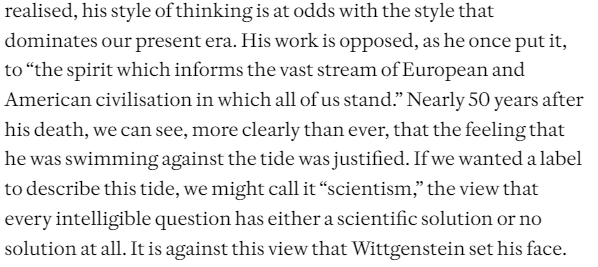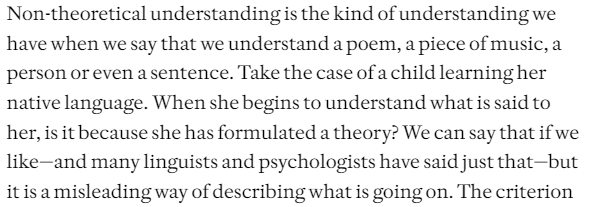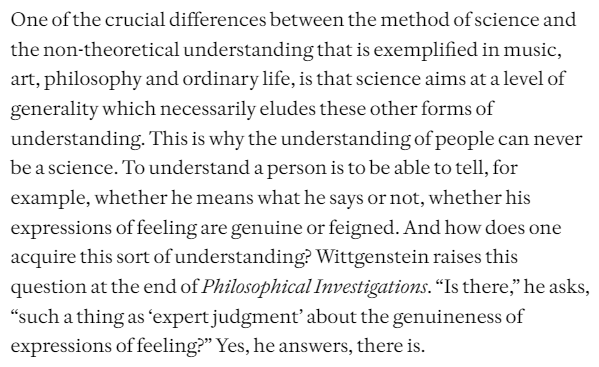Some have claimed that biological and psychological sciences can and will answer most of these questions. Evolutionary biology and neuroscience will reveal to us what our nature is like. Others have rejected such attempts as crude scientism and sought answers from various philosophies, political ideologies, religions and theologies. We suggest that none are uniformly “right” but that many have an important contribution to the dialogue.
I agree with the sentiment. If we leave any of these out in a presort then it is likely our conclusion is already in place and our investigation is only for corroboration.
Our aim is not to provide a novel view of human nature but instead point out how human nature cannot be reduced to one single perspective or definition, scientific or otherwise. We maintain that the experience of being human does not reduce neatly into scientific categories.
He is singing to my choir. This should slow us down from enshrining our own naive intuitions.
… since there is no essential, biologically conditioned human nature, human actions should not be scientifically explained but instead understood “from the inside”. The sciences deal with facts, but since there are no discrete scientific facts about human behavior, another method is needed. The sciences study humans as physical and biological entities, whereas the humanities, philosophy and theology account for the personal, the social and religious world of humans.
The tough part about studying human nature scientifically is that it is tough to control for nurture and probably unconscionable to run such an experiment. But if it’s our humanity we wish to understand there is an entire wing of academia all about that, the humanities. Just check your test tubes and microscopes at the door and study all you like.
If there are kinds of human behavior that have pretty much the same biological and psychological causes regardless of cultural context, then a theory of human nature is viable. If there is no innate human nature as the no-nature view insists and there are no general, scientifically tractable facts about human behavior (because human behavior is, say, so context sensitive), the scientific quest for human nature does not seem like a worthwhile enterprise.
We are of the opinion that neither of these extreme options is viable. Current scientific evidence from psychology, biology, anthropology and the social sciences coupled with plausible philosophical arguments suggests that both views are too simplified. Both views are intuitively satisfying, because the scientific one affirms our everyday notion of human nature and the other completely debunks it. Both perpetuate the deep-seated idea that we can clearly identify, and even disentangle, cultural and biological influences.
Against this we want to maintain, in the words of philosopher Jesse Prinz that “we must give up on approaches to social science that try to articulate how humans act or think by nature. Nature alone determines no pattern of behavior. Rather, the investigation of our natural constitution should be directed at explaining human plasticity.”[i] To be clear, this does not amount to throwing ourselves onto the no-nature horn of the dilemma. Instead, it is to reject the existence of biology that is not already shaped by culture and culture that is not already shaped by biology.
So obviously true and the only rules it violates are those operative ones we routinely apply based on past experience. The categorical error in applying rules of thumb acquired in relation to the world outside ourselves to that which does the investigating for purposes arising from our embodiment in that world shows how naive we can be regarding self knowledge.
Great read Jay. Just genius so far but I think I’ll save Three Concepts of Human Nature for after I’ve carped some embodied diem.





